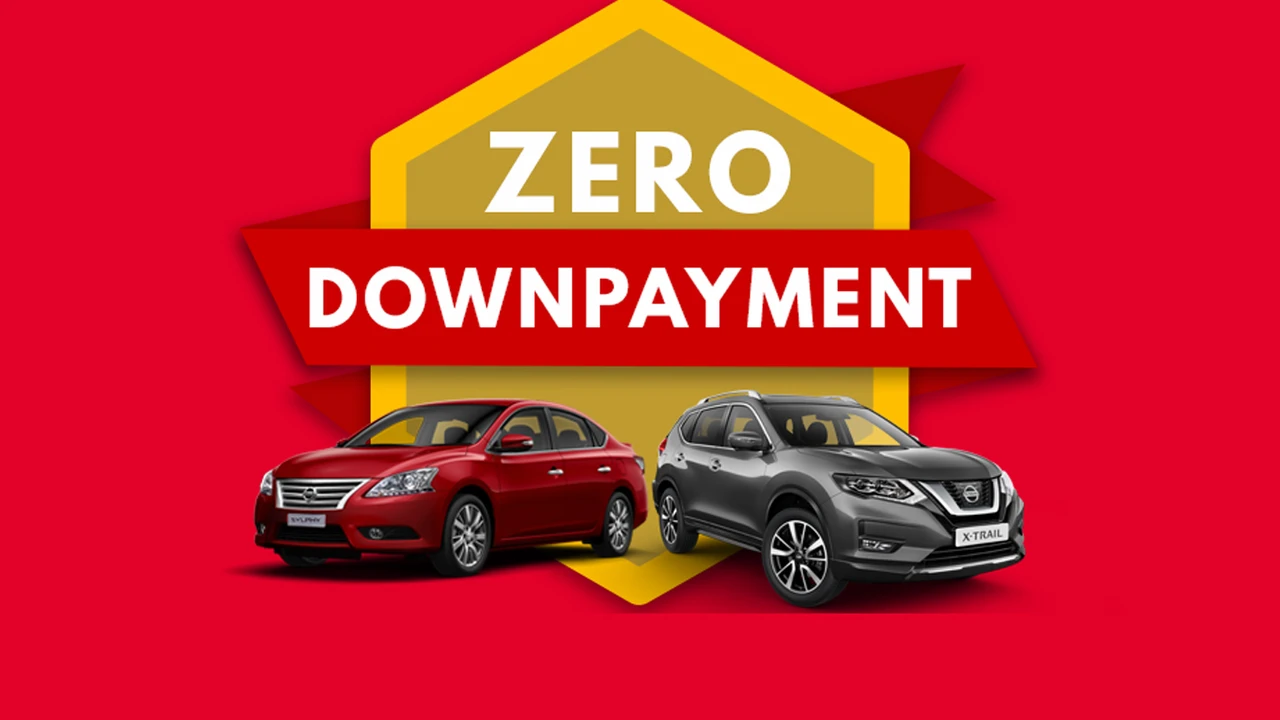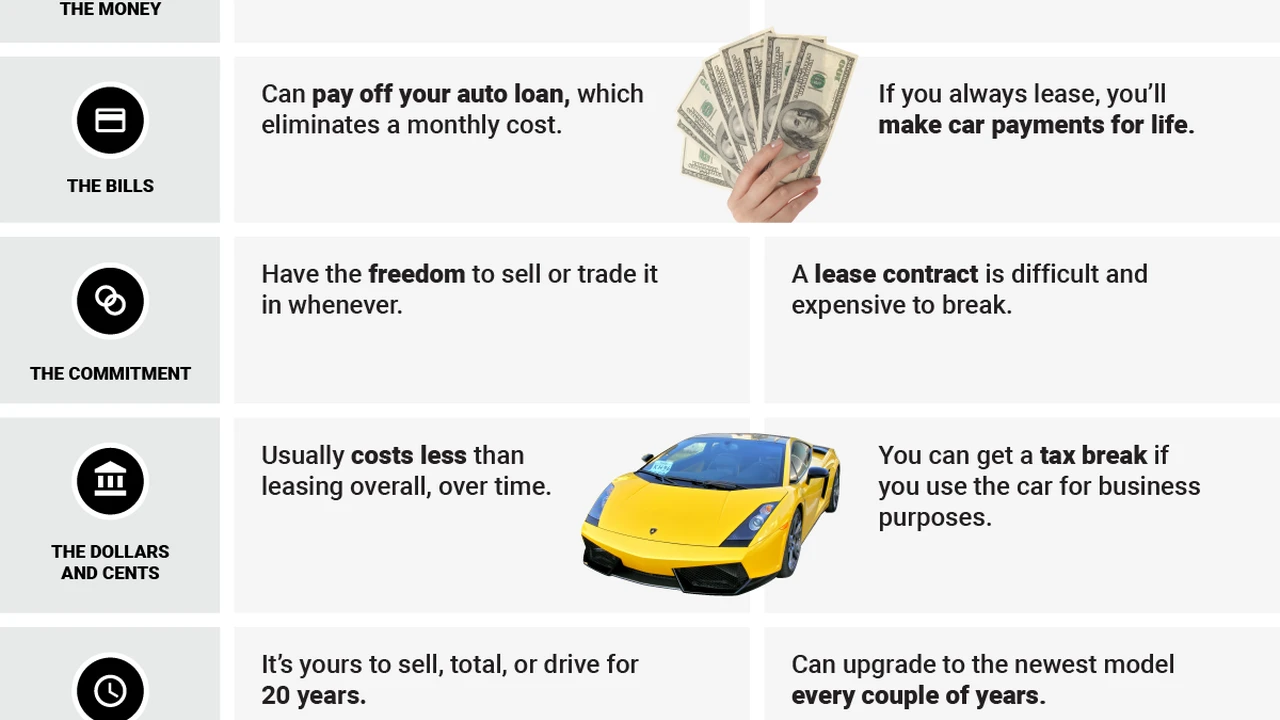3 Best Electric Cars to Lease Right Now

So, you're thinking about going electric and leasing? Smart move! Electric cars are getting better all the time, and leasing lets you enjoy the latest tech without the long-term commitment. Plus, you avoid battery degradation worries! But with so many options out there, where do you even begin? Don't sweat it. We've put together a list of the 3 best electric cars to lease right now, considering factors like range, features, monthly cost, and overall value. Let's dive in!
Why Lease an Electric Car? (Electric Car Leasing Benefits)
Before we jump into the cars themselves, let's quickly recap why leasing an EV can be a great idea. First off, technology moves fast. Leasing allows you to upgrade to the newest model with improved battery tech and features every few years. You also avoid the hassle of selling the car later on. Plus, leasing often comes with lower monthly payments compared to buying, freeing up cash for other things. Finally, you usually get a warranty covering most maintenance and repairs during the lease term. Think of it as a long-term test drive with minimal commitment!
#1 Tesla Model 3: The All-Around Electric Car Leasing Champ (Tesla Model 3 Lease Deals)
It's hard to talk about electric cars without mentioning Tesla, and the Model 3 remains a top contender for a reason. It offers a fantastic blend of performance, range, technology, and brand appeal. The Model 3’s minimalist interior is a love-it-or-hate-it design, but the large touchscreen interface is responsive and easy to use. The Autopilot system, even in its standard form, provides excellent driver assistance features. And of course, access to the Tesla Supercharger network is a huge perk for long-distance travel. Lease deals on the Model 3 are generally competitive, making it an attractive option for many.
Specific Model Recommendations & Usage Scenarios:
- Model 3 Rear-Wheel Drive: Ideal for daily commutes and city driving. Offers excellent range (around 272 miles) and a smooth, comfortable ride. Perfect for those who primarily charge at home.
- Model 3 Long Range: For those who frequently take longer trips or live in areas with limited charging infrastructure. The extended range (around 333 miles) provides peace of mind.
Pricing: Lease prices vary depending on the trim, down payment, and lease term. Expect monthly payments to range from $400 to $700, depending on options and current incentives. Keep an eye out for promotions and tax credits that can significantly lower the cost.
#2 Hyundai IONIQ 5: Retro-Futuristic Style and Ultra-Fast Charging (Hyundai IONIQ 5 Lease Offers)
The Hyundai IONIQ 5 is a real head-turner with its retro-inspired design. But it's not just about looks. The IONIQ 5 boasts an incredibly spacious interior, thanks to its long wheelbase. It also features ultra-fast charging capabilities, meaning you can add significant range in a very short amount of time at compatible charging stations. The ride is comfortable and quiet, making it a great choice for families or anyone who appreciates a relaxed driving experience. Plus, the IONIQ 5 often comes with very attractive lease deals, making it a compelling alternative to the Model 3.
Specific Model Recommendations & Usage Scenarios:
- IONIQ 5 SE: A well-equipped base model that offers excellent value for the money. Great for everyday use and shorter commutes.
- IONIQ 5 SEL: Adds more premium features like a power liftgate, HDA 2 (Highway Driving Assist 2), and synthetic leather seating. A good balance of features and price.
- IONIQ 5 Limited: The top-of-the-line trim with all the bells and whistles, including a panoramic sunroof, Remote Smart Parking Assist, and a head-up display.
Pricing: Lease prices are often competitive, ranging from $350 to $600 per month, depending on the trim and incentives. Hyundai frequently offers attractive lease deals to boost sales.
#3 Chevrolet Bolt EUV: Affordable Electric Car Leasing with Super Cruise (Chevy Bolt EUV Lease Deals and Reviews)
If you're looking for the most affordable way to get into an electric car lease, the Chevrolet Bolt EUV is definitely worth considering. While it may not have the range or prestige of the Tesla or Hyundai, the Bolt EUV offers a lot of value for the money. It's surprisingly spacious inside, and it comes with a decent suite of standard features. The real standout feature, however, is available Super Cruise, a hands-free driving system that works on pre-mapped highways. This makes the Bolt EUV a great option for commuters who spend a lot of time on the highway. Following the battery recall issues of earlier models, GM has worked hard to regain customer trust, and the Bolt EUV represents a significant step forward.
Specific Model Recommendations & Usage Scenarios:
- Bolt EUV LT: The base model is surprisingly well-equipped and offers excellent value. A great choice for budget-conscious shoppers.
- Bolt EUV Premier: Adds leather upholstery, heated seats, and other premium features. Worth considering if you want a more luxurious experience.
- Bolt EUV with Super Cruise Package: For drivers who spend a lot of time on the highway and want the convenience of hands-free driving.
Pricing: Lease prices are typically the lowest of the three, often falling in the $300 to $500 per month range, depending on incentives and trim level. Chevrolet frequently offers aggressive lease deals on the Bolt EUV.
Electric Car Leasing: Factors to Consider (Electric Car Lease Terms and Conditions)
Before you sign on the dotted line, there are a few key factors to keep in mind when leasing an electric car:
- Mileage Limits: Lease agreements typically have mileage limits. Exceeding these limits can result in significant per-mile charges. Estimate your annual mileage carefully.
- Charging Infrastructure: Consider your access to charging. Do you have a home charger? Are there plenty of public charging stations in your area?
- Lease Term: Lease terms typically range from 24 to 36 months. Shorter terms often have higher monthly payments, but they allow you to upgrade more frequently.
- Incentives and Tax Credits: Take advantage of any available federal, state, or local incentives for leasing an electric car. These can significantly reduce your overall cost.
- Battery Health: While battery degradation is less of a concern with leasing, it's still worth asking about the battery warranty and expected battery performance.
- End-of-Lease Options: Understand your options at the end of the lease. Can you purchase the car? Can you extend the lease? What are the return conditions?
Comparing the Electric Cars: Tesla Model 3 vs. Hyundai IONIQ 5 vs. Chevy Bolt EUV (Electric Car Comparison: Range, Price, Features)
Let's break down a quick comparison table to help you decide which electric car is right for you:
| Feature | Tesla Model 3 | Hyundai IONIQ 5 | Chevrolet Bolt EUV |
|---|---|---|---|
| Starting Lease Price (Approx.) | $400 - $700/month | $350 - $600/month | $300 - $500/month |
| Range (Approx.) | 272 - 333 miles | 220 - 303 miles | 247 miles |
| Charging Speed | Tesla Supercharger Network | Ultra-Fast Charging (800V) | Standard Charging (400V) |
| Key Features | Autopilot, minimalist design, Supercharger access | Spacious interior, retro-futuristic design, fast charging | Affordable price, available Super Cruise |
| Ideal For | Tech enthusiasts, long-distance travelers | Families, design-conscious buyers | Budget-conscious shoppers, commuters |
Electric Car Battery Technology: Understanding the Basics (Electric Car Battery Types and Performance)
Understanding the basics of electric car battery technology can help you make a more informed leasing decision. Most electric cars use lithium-ion batteries, but there are different variations with varying energy densities and charging characteristics. For example, some batteries use nickel-manganese-cobalt (NMC) chemistry, while others use lithium iron phosphate (LFP). LFP batteries are generally more durable and less prone to thermal runaway, but they may have lower energy density. The battery's capacity, measured in kilowatt-hours (kWh), determines the car's range. A larger battery pack provides more range but also increases the car's weight and cost.
Home Charging vs. Public Charging: Setting Up Your Electric Car Charging Routine (Electric Car Charging Options and Costs)
One of the most important aspects of owning or leasing an electric car is figuring out your charging routine. There are two main options: home charging and public charging. Home charging is the most convenient and cost-effective option for most people. You can install a Level 2 charger in your garage or driveway, which can fully charge your car overnight. Public charging stations are available in various locations, such as shopping centers, parking garages, and highway rest stops. Public charging can be more expensive than home charging, but it's a good option for topping up your battery on the go or when traveling long distances. There are different levels of public charging, including Level 2 and DC fast charging. DC fast charging is the fastest option, but it's also the most expensive.
Electric Car Maintenance: What to Expect When Leasing an EV (Electric Car Maintenance Costs and Schedules)
Electric cars generally require less maintenance than gasoline-powered cars because they have fewer moving parts. There's no need for oil changes, spark plug replacements, or exhaust system repairs. However, electric cars still require some maintenance, such as tire rotations, brake inspections, and coolant flushes. Battery health is also a key consideration, although it's less of a concern with leasing since the battery is typically covered under warranty. The cost of electric car maintenance is generally lower than the cost of gasoline car maintenance.
Future of Electric Cars: What to Expect in the Coming Years (Electric Car Technology Trends and Innovations)
The electric car market is rapidly evolving, with new technologies and innovations emerging all the time. Battery technology is constantly improving, leading to longer ranges and faster charging times. Autonomous driving features are becoming more sophisticated, making driving safer and more convenient. The cost of electric cars is also decreasing, making them more accessible to a wider range of consumers. In the coming years, we can expect to see even more electric car models, improved charging infrastructure, and advancements in battery technology. The future of electric cars is bright, and leasing an electric car is a great way to experience the latest technology without the long-term commitment.
Electric Car Safety Features: A Comprehensive Guide (Electric Car Safety Ratings and Technologies)
Electric cars are generally very safe, thanks to their low center of gravity and advanced safety features. Many electric cars come with a comprehensive suite of safety technologies, such as automatic emergency braking, lane departure warning, and blind-spot monitoring. Electric cars also have unique safety features, such as battery protection systems that prevent thermal runaway in the event of a crash. The National Highway Traffic Safety Administration (NHTSA) and the Insurance Institute for Highway Safety (IIHS) conduct crash tests on electric cars to assess their safety performance. Electric cars typically receive high safety ratings from these organizations.
Electric Car Range Anxiety: Tips for Overcoming Your Fears (Electric Car Range Tips and Strategies)
Range anxiety, the fear of running out of battery power while driving an electric car, is a common concern for new EV owners. However, there are several strategies you can use to overcome range anxiety. Plan your trips in advance and identify charging stations along your route. Use a range estimator to calculate your expected range based on your driving conditions. Avoid aggressive driving, which can drain the battery quickly. Precondition your battery before you start driving, especially in cold weather. And don't be afraid to top up your battery whenever you have the opportunity. With a little planning and preparation, you can eliminate range anxiety and enjoy the many benefits of driving an electric car.
Used Electric Car Leasing: Is It a Good Option? (Used Electric Car Lease Deals and Considerations)
While most people lease new electric cars, leasing a used electric car can be a more affordable option. Used electric car lease deals are becoming increasingly common as the electric car market matures. However, there are a few things to consider before leasing a used electric car. The battery's health is a key concern, as used batteries may have reduced range and performance. The lease terms may be less flexible than those for new cars. And the availability of used electric car lease deals may be limited. Despite these considerations, leasing a used electric car can be a good option for budget-conscious shoppers who want to experience the benefits of electric driving.
Electric Car Tires: Choosing the Right Tires for Your EV (Electric Car Tire Types and Performance)
Choosing the right tires for your electric car is important for maximizing range, performance, and safety. Electric cars typically use low-rolling-resistance tires, which are designed to reduce friction and improve energy efficiency. However, low-rolling-resistance tires may have lower grip and handling performance compared to conventional tires. There are also all-season tires and winter tires specifically designed for electric cars. All-season tires provide good performance in a variety of weather conditions, while winter tires offer superior traction in snow and ice. The best tires for your electric car will depend on your driving conditions and preferences.
The Environmental Impact of Electric Car Leasing (Electric Car Environmental Benefits and Sustainability)
Leasing an electric car can have a positive environmental impact compared to driving a gasoline-powered car. Electric cars produce zero tailpipe emissions, which reduces air pollution and greenhouse gas emissions. The environmental benefits of electric cars are even greater when they are powered by renewable energy sources, such as solar or wind power. Leasing an electric car also reduces the demand for fossil fuels, which helps to conserve natural resources and protect the environment. While the manufacturing of electric car batteries does have some environmental impact, the overall environmental benefits of electric cars outweigh the drawbacks.
Electric Car Insurance: What You Need to Know (Electric Car Insurance Costs and Coverage)
Electric car insurance is similar to gasoline car insurance, but there are a few key differences. Electric cars may have higher insurance premiums due to their higher value and the cost of repairing or replacing the battery. However, some insurance companies offer discounts for electric cars, as they are generally considered to be safer than gasoline-powered cars. It's important to shop around and compare quotes from different insurance companies to find the best coverage at the best price. You should also make sure that your insurance policy covers the cost of replacing the battery in the event of an accident or other covered loss.
Electric Car Accessories: Must-Have Items for Your EV (Electric Car Accessories: Charging Cables, Adapters, and More)
There are several accessories that can enhance your electric car leasing experience. A portable charging cable is essential for charging your car at different locations. A charging adapter allows you to connect to different types of charging stations. A sunshade can help to keep your car cool in hot weather. A floor mat can protect your car's interior from dirt and debris. And a dashcam can provide valuable evidence in the event of an accident. These accessories can make your electric car leasing experience more convenient, comfortable, and enjoyable.
:max_bytes(150000):strip_icc()/277019-baked-pork-chops-with-cream-of-mushroom-soup-DDMFS-beauty-4x3-BG-7505-5762b731cf30447d9cbbbbbf387beafa.jpg)






